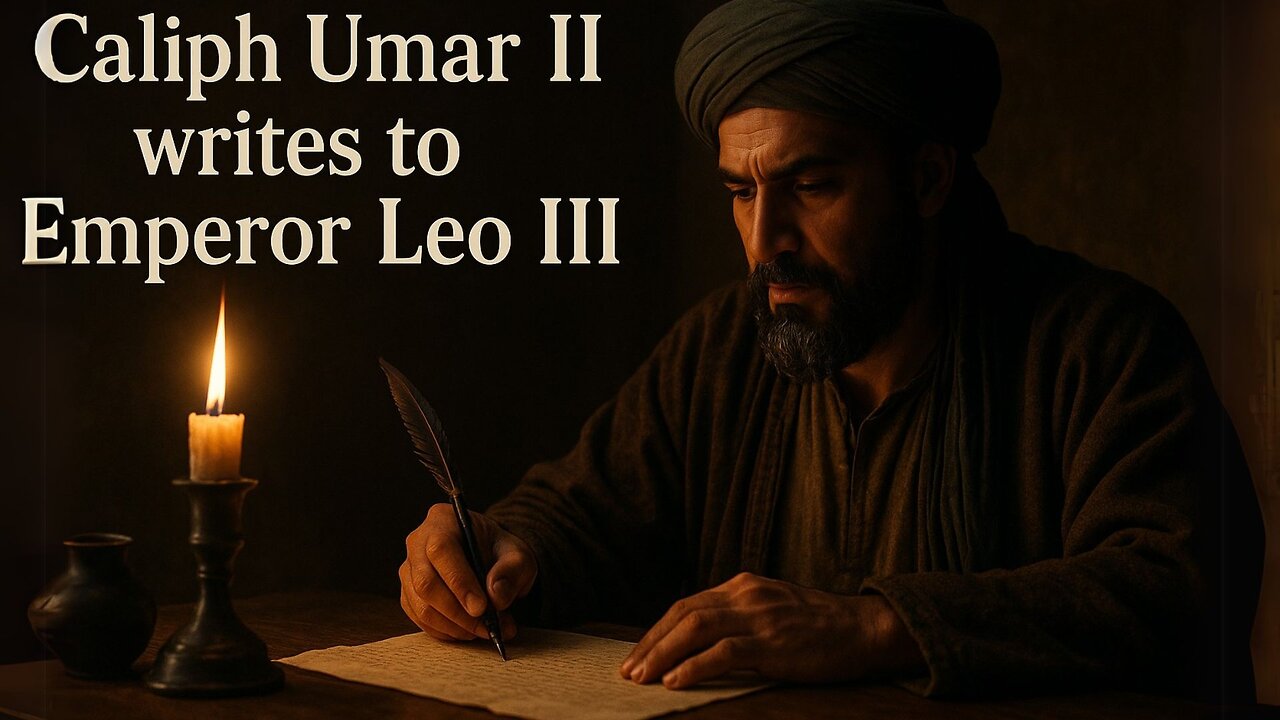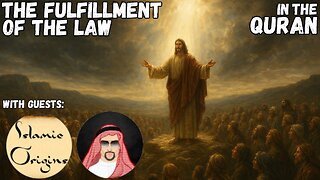Premium Only Content

Did Jesus Really Predict Muhammad?
In the early 8th century, the Umayyad Caliphate stood as a colossus, its dominion stretching from the Iberian Peninsula to the borders of Central Asia, a testament to the meteoric rise of Islam. Amid this golden age, a remarkable figure emerged: Umar II, the “pious caliph,” revered for his justice, austerity, and devotion to the faith.
In c.717, as the Islamic empire pressed against the walls of Constantinople, Umar II penned a letter to Leo III, the resolute Byzantine emperor, initiating a rare and enigmatic exchange between two titans of their time. This correspondence, preserved in fragmented accounts and later Christian chronicles, pulses with intrigue—was it a theological challenge, a diplomatic overture, or a call for the Christian emperor to embrace Islam?
Umar’s letter, written at the zenith of Umayyad power, reflects a faith still defining itself, yet bold in its claim to divine truth. What makes this text so compelling is its glimpse into a moment of direct dialogue between Islam and Christianity, two faiths locked in both rivalry and coexistence. Umar’s words, addressing a Christian ruler as an equal, hint at a complex understanding of religious boundaries, perhaps shaped by the multi-faith society of Damascus.
Why did Umar choose to write? What vision of Islam did he seek to project to a Byzantine audience? This video resurrects the voice of Umar II, offering a portal to the early Islamic world, where conquest and conviction intertwined. Journey to the early 8th century, a time of siege and ambition, and uncover the words that crossed an empire’s divide.
Join us in this exploration of Umar II, his letter to Leo III, and the dawn of Islamic-Christian dialogue.
-
 8:01
8:01
J. Corman Kane
5 days agoThe Quran's Hidden Connection to Jesus REVEALED
12 -
 LIVE
LIVE
TimcastIRL
2 hours agoDOJ Launches FULL INVESTIGATION Into TPUSA Antifa RIOT, Media Says Mostly Peaceful | Timcast IRL
22,988 watching -
 LIVE
LIVE
Barry Cunningham
6 hours agoBREAKING NEWS: SOLVING THE HOUSING CRISIS BY UNDERSTANDING VETERANS DAY! AND IT'S MOVIE NIGHT!
3,601 watching -
 LIVE
LIVE
SpartakusLIVE
3 hours agoWZ Solos to Start || NEW Battlefield 6 - REDSEC Update Later
187 watching -

ThisIsDeLaCruz
12 hours agoInside Kenny Chesney’s Sphere Part 1: Exclusive Backstage Pass
7 -
 2:05:31
2:05:31
Glenn Greenwald
5 hours ago"Former" Al-Qaeda Leader Welcomed to the White House; The "New TikTok" Clamps Down on Israel Critics: With Influencer Guy Christensen; Dave Portnoy Decries Cancel Culture, Unless His Group is Under Attack | SYSTEM UPDATE #545
98.4K36 -
 LIVE
LIVE
Spartan
6 hours agoNine Sols
12 watching -
 LIVE
LIVE
SOLTEKGG
1 hour ago🔴 HUGE UPDATE - Veterans Day | Redbull x Dogtag Giveaway
54 watching -
 LIVE
LIVE
Flyover Conservatives
10 hours agoTough Love for Trump: What Must Change Now to Win Back America - Dennis Michael Lynch | FOC Show
452 watching -
 DVR
DVR
The White House
2 hours agoAbove, Below & Beyond: A Presidential Special
14.1K10